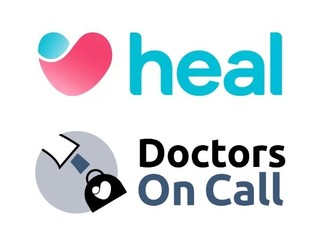Global AI in healthcare market expected to rise to $164B by 2030
The market size for 2023 was $10.31 billion
Read more... If you've ever been unlucky enough to have a loved one suffer from a chronic disease, you know the reality of what their day to day life is, and it isn't pretty; it's a lot of drudgery and pain and stress. Sadly, these conditions are very common: according to the CDC, six in 10 adults in the US have a chronic disease, and four in 10 have more than one.
If you've ever been unlucky enough to have a loved one suffer from a chronic disease, you know the reality of what their day to day life is, and it isn't pretty; it's a lot of drudgery and pain and stress. Sadly, these conditions are very common: according to the CDC, six in 10 adults in the US have a chronic disease, and four in 10 have more than one.
On top of managing their disease on a day to day basis, patients with a chronic illness also have the added stress of worrying about the cost of treating themselves, and about the logistics of getting themselves to the doctor. Not only do they need to be near a doctor who can treat them for their specific condition, but they have to be able to physically get themselves there, which is often easier said than done.
That's one reason why this past year, with the rise of telemedicine and virtual care, has been so important for these patients; finally, they can access care in a way that better fits their capabilities and lifestyle. It has also been a boon to companies like Spiras Health, a provider of in-home and virtual healthcare solutions for patients with complex chronic conditions, such as COPD, congestive heart failure, kidney disease, and hypertension.
On Tuesday, the company announced a $14 million Series B funding round. The round was led by NEA, with participation from existing investors Altitude Ventures, FCA Venture Partners, and other strategic investors.
Founded in 2015, the Tennessee-based Spiras Health combines home-based services, telehealth, two-way digital communications and remote patient monitoring. It uses predictive modeling to identify and assess patients who have an elevated probability of avoidable healthcare costs and it then develops a plan which address barriers to care, such as social determinants of health.
Most patients are visited in their home monthly, but follow up visits can range from once a week to once every few months, depending on their need. Patients can also call their Clinical Care Team 24/7 to get help or ask questions. The goal is to reduce the need for hospital and ER visits, thereby lowering the costs for the patient's health plan.
Spiras grew quite a bit in 2020, with patient volume doubling and the company says it expects to see even larger growth this year. It currently has multiple national payors under contract, including Clover Health, which uses data analysis to lower the cost of health insurance for seniors using Medicare Advantage.
Now that it has this new funding, the company says it will launch into new markets with health plan partners, build out its sales and marketing team, as well as its management team, and invest further into R&D.
"This is an exciting day for the Spiras Health team. We are elated and honored that NEA saw our potential for exponential growth, to serve patients in the U.S. suffering from debilitating illnesses,” Spiras' CEO Scott A. Bowers, who took over the company in January, said in a statement.
"Our mission has been to target and solve some of the most significant issues facing the healthcare system: make specialty care accessible in the patients’ homes, lower total cost of care for payors where heart and lung disease are often primary cost drivers, and improve the lives of those suffering with progressive diseases. With this financing, we have the capacity to serve our mission and provide longitudinal care for those needing long overlooked gaps in services."
The chronic disease management space
Two of the best known, and best funded, companies in the chronic disease management space space are Vida Health and Omada Health.
Vida Health provides a collaborative care model that includes access to practitioners like coaches, licensed therapists, registered dietitians, diabetes educators and personal trainers to help members with chronic disease management. The company recently raised a $110 million round $188 million.
Omada Health is a company that seeks to help prevent conditions such as heart disease and diabetes by helping patients change their behavior and patterns using insights about social networking, gaming, and behavioral science. Its flagship program, Prevent, is designed to help participants modify their behavior and reduce their risk of Type 2 diabetes. The company has raised $256.5 million.
Other companies looking to tackle chronic disease include Karuna Labs, which uses VR to treat chronic pain; Lighter Health, a nutrition coaching intervention program for managing chronic disease risk; myBiometry, a platform to remotely monitor and manage patients with chronic conditions using software and biomarker data; and Lark Health, and AI-driven provider for chronic conditions.
(Image source: spirashealth.com)
The market size for 2023 was $10.31 billion
Read more...At Culture, Religion & Tech, take II in Miami on October 29, 2024
Read more...The company will use the funding to broaden the scope of its AI, including new administrative tasks
Read more...




